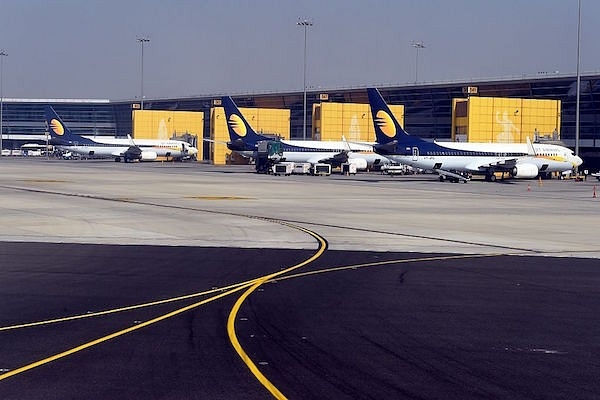Business
Indian Airlines Are Raking It In, But May Be Making The Same Mistakes Again
- You wouldn’t be able to tell the difference between full-service carrier (FSC) and low-cost carrier (LCC) airlines from the fares they now charge.
- There’s almost no product differentiation in Indian civil aviation. FSCs are essentially LCCs with free food. This is due to a return to profits for all airlines.
- This means that when, and if, fuel costs soar, the airline industry will stall again, with an especially pronounced effect expected on the FSCs.

Image Credit: ROBERTO SCHMIDT/AFP/Getty Images
One of the reasons for the failure of Kingfisher Airlines, and the near-failure of Jet Airways (which got rescued by an Etihad funds infusion), was brand confusion. Both of them ran full-service and low-cost carriers (FSCs and LCCs) using similar brand names. While Kingfisher ran an LCC called Kingfisher Red, Jet ran two LCCs – Jet Konnect and Jet Lite.
But the recent return of all airlines to profits – thanks largely to low jet fuel prices – appears to have led all of them to return to the same budget carrier pricing model, regardless of whether they run FSCs or LCCs.
In 2015-16, Jet reported its biggest-ever profit of Rs 1,173 crore, and SpiceJet of Rs 407 crore. GoAir too made profits. The eternal loser, Air India, claimed it was turning things around two years ahead of schedule. Market leader Indigo, of course, continued its dream run, posting a profit of Rs 1,990 crore.
While Indigo, GoAir, AirAsia and SpiceJet
are full-fledged LCCs, Air India, Jet Airways and Air Vistara are supposed to
be FSCs. But you wouldn’t know this from their fares. The profits clearly come from fuel savings.
A cursory look at any
airline booking site on any day – makemytrip, cleartrip, goibibo and so on – will make
you wonder if there is any point of difference at all between LCCs and FSCs. The
fares quoted by FSCs are barely Rs 100-200 more than the cheapest LCCs on some
key routes like Mumbai-Delhi, and for peak time slots, even LCCs charge an
arm and a leg for seats. So both at the lower and higher ends, fares show
no major divergence. The lowest LCC fare for a Mumbai-Delhi flight on 27 July
was Rs 3,204; the lowest FSC fare, Rs 3,326.
With the difference in fares being so low, the only real brand difference between LCCs and FSCs seems to be the free food available on the latter. As food is something you pay for in LCCs, effective costs of travel are almost the same.
At least you get to choose what you eat in LCCs, even if priced too high. In FSCs, you get what they dish out. Hardly a plus point.
To be sure, Air Vistara, Jet Airways and Air India also have a business class, which is supposed to provide two- or even three-class configuration (with a premium economy thrown in between business and economy), but the Indian market seems to have converged around the budget airline model.
Putting bums on budget class seats remains tough, and Vistara is said to be considering a change in seat configuration because of this. In any case, even Indigo offers some special seats on the front rows that are pricier. So even this minor differentiation in seating and pricing is immaterial.
Put simply, there is almost no product differentiation in Indian civil aviation. This means FSCs are not really FSCs in the full sense of the term. They are LCCs with free food, period.
In the last few quarters, almost all airlines, LCC and FSC, have become profitable. This is what enables each one of them to offer comparable fares.
The underlying implication of this lack of differentiation is that when, and if, fuel costs soar, the airline industry will stall again. The LCCs will be able to drop prices faster than the FSCs, leading to better chances of survival.
When everybody makes money due to favourable circumstances, someone is probably living on borrowed time.
The FSCs need to learn to differentiate more when fuel costs are low. Later, when costs rise in unison, they will find it tougher to keep up.
Support Swarajya's 50 Ground Reports Project & Sponsor A Story
Every general election Swarajya does a 50 ground reports project.
Aimed only at serious readers and those who appreciate the nuances of political undercurrents, the project provides a sense of India's electoral landscape. As you know, these reports are produced after considerable investment of travel, time and effort on the ground.
This time too we've kicked off the project in style and have covered over 30 constituencies already. If you're someone who appreciates such work and have enjoyed our coverage please consider sponsoring a ground report for just Rs 2999 to Rs 19,999 - it goes a long way in helping us produce more quality reportage.
You can also back this project by becoming a subscriber for as little as Rs 999 - so do click on this links and choose a plan that suits you and back us.
Click below to contribute.
Latest